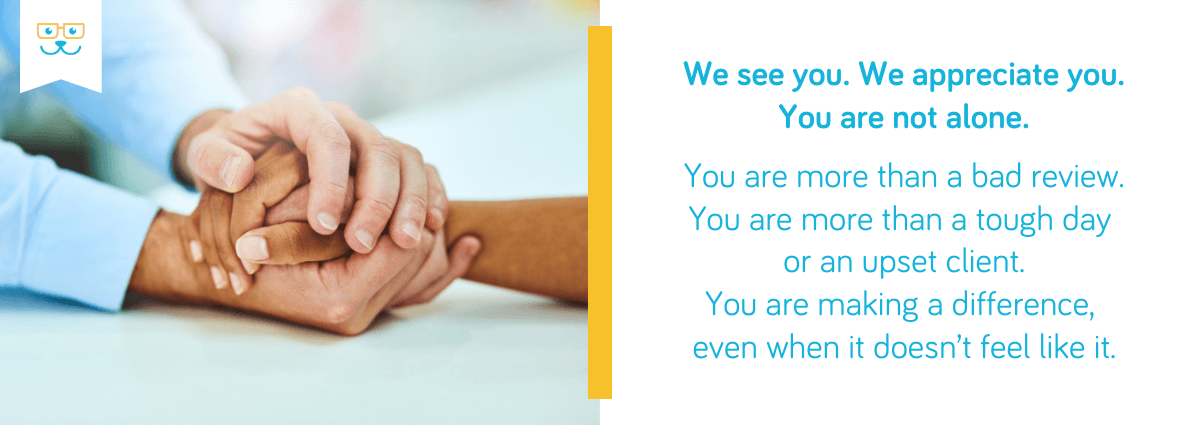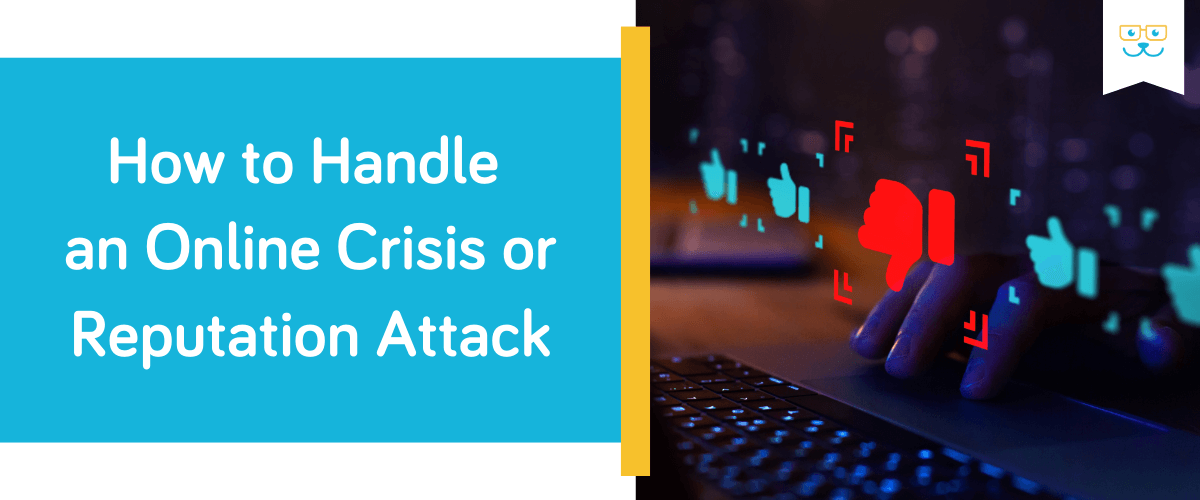How to Handle an Online Crisis or Reputation Attack
No matter how amazing your team is, how much your clients love you, or how positive your practice culture is… all it takes is one angry post or negative review to feel like the internet is turning against you.
Whether it’s a misunderstood interaction, a client having a bad day, or a coordinated smear campaign (yes, it happens), an online reputation crisis can snowball fast.
But here’s the good news: You have more power than you think.

Let’s walk through how to handle an online crisis with professionalism, confidence, and compassion, so your reputation stays resilient and your community keeps trusting you with their pets.
First, Recognize the Type of Crisis You're Dealing With
Not every negative comment is a full-blown crisis. It's important to assess the situation clearly before reacting.
Here are a few types of reputation challenges:
- One-off negative review: A single bad experience from a client, even if it feels unfair.
- Public social media complaint: Someone tags your clinic or posts about a bad experience for others to see.
- Viral backlash: A post or comment gains traction and sparks wider community discussion or outrage.
- Fake or malicious reviews: Competitors, trolls, or bots intentionally trying to harm your business.
Genius Reminder: Not every criticism needs the same response, but every single one deserves attention.
Step 1: Don’t Panic, Don’t Delete
Your first instinct might be to delete the review, hide the comment, or fire back with a defensive response. Don’t. Deleting a public comment can escalate tension and make it look like you’re hiding something. Screenshots last forever. And a defensive tone will only validate the critic’s emotions and possibly fuel the fire.
Instead:
- Take a deep breath.
- Gather your team and assess what actually happened, and review the records.
- Respond calmly and with compassion (more on that below).
- Document everything, especially if there are legal or harassment concerns.
Genius Reminder: You might even be considering hiring an outside source, like a hacker, to have a negative review removed… Don’t! This opens up a different avenue of potential problems in the future.
Step 2: Respond Thoughtfully, Not Emotionally

Every public reply is an opportunity to show your professionalism and care, not to win a debate.
For valid complaints:
- Acknowledge the client's experience without admitting wrongdoing.
- Apologize for their frustration, not necessarily the event.
- Offer to move the conversation offline (phone call or private message).
- If it’s a minor complaint like “the lobby had an overpowering smell of perfume,” thank them for their feedback; it shows that you're listening and willing to grow, and then take action.
Example:
“Hi Sarah, we’re sorry to hear that your experience didn’t meet expectations. We take feedback seriously and would love the chance to discuss this further. Please contact our practice manager directly at [phone number/email]. Thank you for taking the time to share your concerns.”
For clearly false or malicious reviews:
- Stay calm and factual.
- State that no record of the experience can be found and invite the reviewer to clarify.
- Flag/report the review if it violates the platform’s terms.
Example:
“We don’t have a record of your visit to our practice, but we’d love to learn more. Please reach out directly so we can better understand your concerns.”
Step 3: Investigate Internally
Even if the situation feels unjust, use it as a learning opportunity.
Ask yourself and your team:
- What actually happened?
- Were there any gaps in communication or service?
- Could clearer expectations or follow-up have prevented this?
Don’t just manage the moment, improve the process.
Step 4: Control the Narrative
Once you’ve responded publicly and worked on resolution privately, shift the energy back to the positive.
Here’s how:
- Ask happy clients to leave new reviews. The more recent, positive reviews you have, the more that single negative one gets buried.
- Post behind-the-scenes content to humanize your team and show the care you put into every visit.
- Share educational content or client success stories to reinforce trust.
GeniusTip: A single bad review won’t sink your practice, but radio silence afterward might. Keep showing up. Most people are understanding of an average of a 4.8 review, but don’t always trust a business with a 5-star review.
Step 5: Protect Your Team, Protect Your Peace
A reputation attack, especially one that goes viral, can take an emotional toll. Veterinary teams are already under pressure, and online negativity can feel deeply personal.
- Make sure your team feels safe and supported.
- Communicate your response plan clearly so no one feels caught off guard.
- Talk openly about mental health and boundaries.
- Negative reviews should be handled by the practice manager or owner.
If the attack escalates to threats, harassment, or defamation, don’t hesitate to reach out to the local police department. Your safety comes first.
Reputations Can Be Rebuilt And So Can You
A reputation crisis can feel like a punch to the gut. It can shake your confidence, trigger self-doubt, and make even the most resilient practice owners and team members question their worth.
In the veterinary profession, those feelings run deeper than most people realize.
The pressure is real. Patient care. Client demands. Emotional exhaustion. Even online criticism. It adds up fast. But thankfully, when your team feels supported and your culture is strong, everything shifts. You create an environment where burnout doesn’t win. Where mental health matters. Where lives are saved because no one feels alone. This is how you build a practice that heals more than pets, it heals people too.
So, to every veterinarian, technician, manager, receptionist, and team member reading this:

We see you. We appreciate you. You are not alone.
- You are more than a bad review.
- You are more than a tough day or an upset client.
- You are making a difference, even when it doesn’t feel like it.
Please, take care of yourselves and each other. Check in on your teammates. Talk about the hard stuff. Normalize asking for help.
If you're struggling, we encourage you to reach out:
National Suicide Prevention Lifeline: 1-800-273-TALK (8255)
Or text “HELLO” to 741741 for 24/7 crisis support via the Crisis Text Line.
And don’t forget about resources specifically for veterinary professionals, like Not One More Vet (NOMV) and Veterinary Hope Foundation.
Ready to Get Proactive About Your Reputation?
Don’t wait for a crisis to start thinking about your online presence. At GeniusVets, we help veterinary practices build, protect, and grow their reputations through smart marketing, strong communication, and easy-to-manage tools that keep your clients engaged and loyal.
Schedule a free Marketing Health Exam today! Let’s make sure your practice is ready for anything and known for everything that makes it great.

